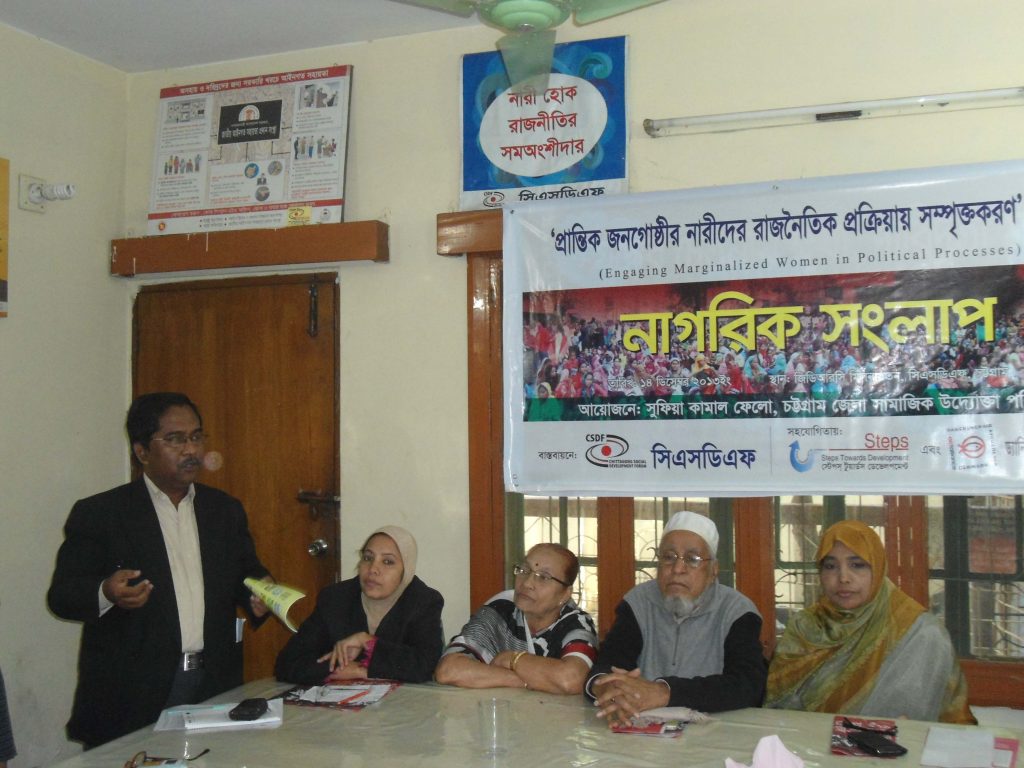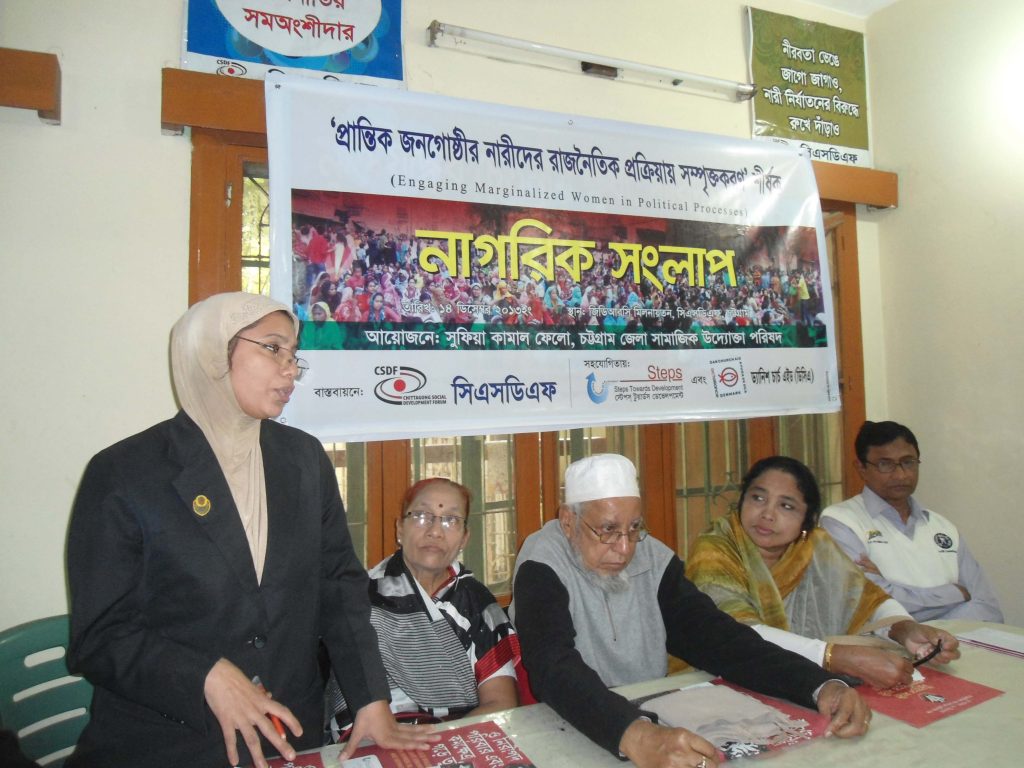Monday 29 April, 2024
16 Apr 2024 | 1: 40 pm

In order to overcome the ongoing political instability and crisis of the country, various speakers have demanded the success of the dialogue between the two major alliances by rescheduling the exploited election period, suspending the destructive political programs like strikes and blockades, in the civil dialogue on the involvement of women of marginalized groups in the political process held in Chittagong. In the morning, CSDF organized a civic dialogue on ‘Inclusion of marginalized women in the political process’ in collaboration with STEPS and Danish Church Aid on the initiative of CSDF in the city’s Chandgaon auditorium.
Chairperson of Chittagong Divisional Upazila Women Vice Chairman Association and Rangunia Upazila Vice Chairman Advocate Rehena Akhtar Ranu, Central Vice President of Bangladesh Teachers Association participated in the dialogue held under the chairmanship of CSDF Chairperson SM Najer Hossain and moderated by CSDF Vice Chairman Kazi Iqbal Bahar Choberi. Freedom Fighter Abdul Wahab Chowdhury, Bangladesh Teachers Association Chittagong Regional General Secretary Freedom Fighter Syed Lakiyat Ullah, Women Leaders Dipika Bara, Saima Haque, Jannatul Ferdous, District Social Entrepreneurship Council General Secretary Ajay Mitra Shanku, Parishad Leader Harun Gafur Bhuiya, Chittagong District Scouts Editor Professor Shahnewaz Ali Mirza, CAB Chandgaon President Jane Alam, Chandgaon Laboratory School and College Principal Ismail Farooqui, Prime Cadet School Principal Abu Yunuch, Women Leaders Saira Begum, Rukhsana Akhrunnabi, Development Workers Nasir Uddin Anik, Mohammad Ali, Shahnaz Parveen, Shaheen Akhtar Beauty, Bilqish Nahar and others. The main article was presented by CAB Chittagong Divisional Organizer Zahurul Islam.

Various speakers in the dialogue said that due to the lack of proper democratic practices within the country’s political parties, some sycophants are being rewarded without proper appreciation of the sacrifice leaders within the parties. As a result, the interests of the political parties are bigger than the interests of the people of the country and the interests of the people are being neglected. As a result, women’s voting rights and their political participation are being hindered. Due to the lack of internal democratic practice in the parties, their grassroots loyalists are not valued, just as the election of party leaders or party nominations are being sold for money, in the same way, ordinary voters are not valued by political parties. As a result, ordinary people are buying and selling votes with money. Voters elect their representatives by voting, after voting they are no longer in the ranks of the people. As the elected representatives are not accountable to their constituents, they are often alienated by vested interests and sycophants. There is no time to understand public interest and public attitudes and public needs. Therefore, it is not possible to protect the voting rights of the common people and marginal groups, their political participation and fundamental rights if they cannot continue fair democratic practices among political parties.
The speakers also said that according to the Election Commission’s RPO, there is a provision to have 30% women members in political parties, but many parties are not following this directive. As a result, the participation of women at the grassroots level in electoral activities is not ensured. Especially women members are not included in the formation of center based committees. The speakers expressed their anger and said that if the situation of women voters in grassroots is like this, the opportunity of women from marginalized groups, especially Adivasis, Harijans, daily labourers, farmers, fishermen, Adivasis, Garments workers, Dalit community will be limited to participate in the political process. The speakers expressed their anger and said that there is a crisis of good governance in the country due to lack of proper balance of power between the local government and the central government. Women’s leadership has not been developed as the powers of elected people’s representatives at the grassroots level have not been properly defined. There are also demands for ensuring the voting rights of marginalized women, increasing local government budgets and reserving seats for marginalized women in reserved seats in Parliament. 56 people from different professions participated in the dialogue.
© Copyright isdebd.com
Powered By Muktodhara Technology Limited